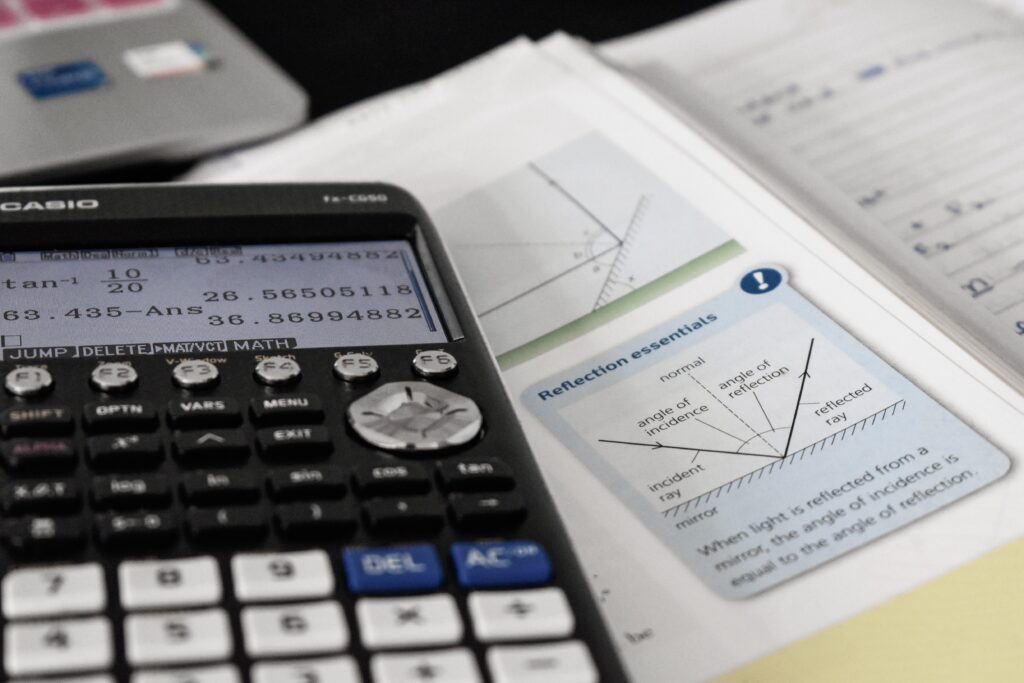In Year 10 standard maths students are expected to master basic trigonometry and understand Pythagoras' theorem. Today we'll dive into the practical side of Pythagorean calculations, exploring example questions and…

As you start 3 Unit Maths, you’ll find a lot of the content expands on the lessons you learned in 2 Unit Maths. Unfortunately, this can lead to many common 3 Unit Maths mistakes getting made as you prepare for exam day.
But thankfully, they can be avoided. You just need to know what to look out for and how to prevent these errors from occurring. These are five of the most common you should be aware of.
1. Focussing on the Formula Sheet
Some students may believe that having a formula sheet means they don’t have to worry about understanding certain concepts.
But this isn’t true, especially when it comes to 3 Unit Maths.
While some questions can be solved by simply knowing the formula, others may require a deeper understanding of how to use it in more complex scenarios.
In the HSC exam, you’ll get tested on your comprehension of formulas rather than your ability to apply them to straightforward problems. Relying solely on the sheet can lead to challenges when dealing with tougher questions.
How to Avoid: Take note of the formulas listed on the reference sheet, as they are often frequently used in the course material. You need to have a thorough understanding of the context and potential applications of each one. You should also be aware of how these formulas may be tested, as simply memorising them won’t guarantee success in your exams.
2. Overuse of the Calculator
It’s common for students to make errors while writing down answers based solely on what they see on their calculator screens.
Even if the calculations are correct, inputting incorrect data can lead to mistakes. A simple error, such as entering the wrong sign, can result in a negative value for a question that requires a distance measurement. Similarly, failing to switch your calculator from degrees to radians can lead to inaccurate results, such as a positive value for cos(pi).
How to Avoid: Before you press a digit on your calculator, think about the type of answer you’re expecting once you’ve finished inputting data. For example, should it be positive or negative? Will it be a large or small number? Are you expecting a specific type of result, like a fraction? When you think about what the answer should look like, you’re more likely to identify if an error has occurred.
3. Believing All Functions are Additives
Advanced mathematics involves the concept of additive functions, which are those functions where f(x+y) equals f(x) plus f(y). These functions are significant in various fields, such as calculus. For instance, derivatives and integrals are additive, which means that (f + g)’ equals f’ + g’.
However, it is worth noting that not all functions operate the same way. While some can be easily manipulated and analysed, others require a different approach. Understanding the nature of a function is crucial in solving complex mathematical problems.
How to Avoid: Take note of the functions that are and are not additives. For example, sin(x + y) is NOT equal to (sin x) + (sin y). Another example is (x + y)2 is NOT equal to (x2) + (y2).
4. Overcomplicating the Solution
One of the most common pieces of feedback from markers is that students waste valuable time by using complicated techniques for simple questions.
This can easily be avoided.
For example, students spend an excessive amount of time completing polynomial long division instead of using the remainder of factor theorem. Another common mistake is listing all the outcomes of a probability question instead of counting them systematically.
How to Avoid: Start tackling a problem using the simplest process and gradually increasing the complexity if necessary. You can then be assured you’re approaching the question correctly at each stage. This ensures the method you use to solve the problem will be the most efficient so that you can spend extra time on more challenging questions.
5. Lack of Preparation
The biggest mistake students make when preparing for the 3 Unit Maths exam is not dedicating enough time to practice.
Students will tend to focus on mastering the concepts instead of putting them into practice. They also don’t take the time to validate their understanding of the fundamentals with experts such as their teacher or an HSC Maths tutor.
How to Avoid: Practice makes perfect. Start by taking as many HSC past papers as possible until you feel confident with the concepts and fundamentals of 3 Unit Maths. You should also validate your thinking with professionals who can ensure you’re on the right track, so you don’t risk getting an answer wrong in your HSC exam.

HSC Maths Tutor
Master Coaching offers one on one tutoring for HSC Maths. We are located in Hurstville, Sydney, and we also provide online tutoring to students across NSW.



